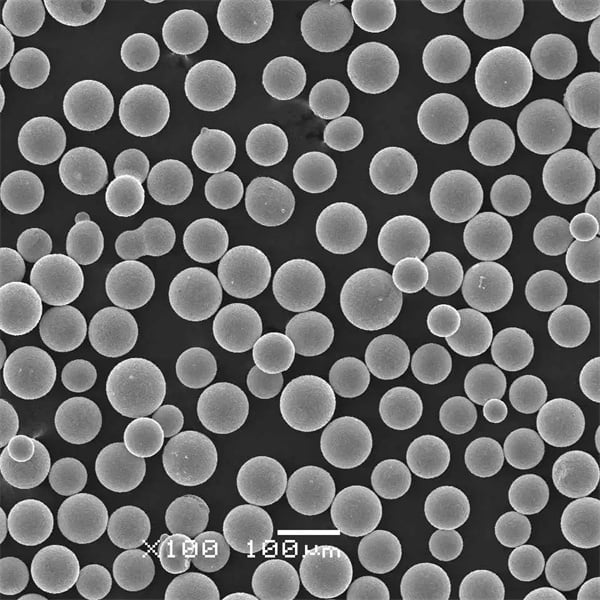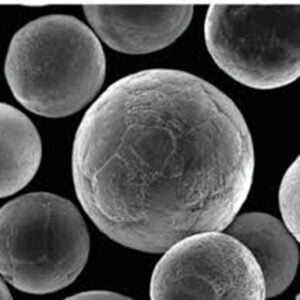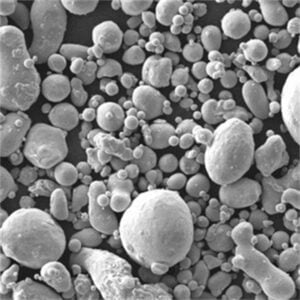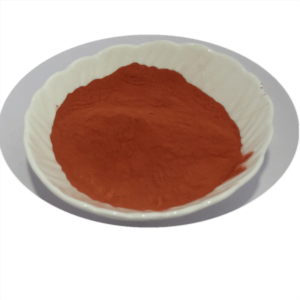Overview of Metal Binder Jetting
금속 바인더 제팅 (MBJ) is an advanced additive manufacturing technique that offers significant advantages over traditional metalworking processes. By using a binder to adhere metal powder particles, this method builds complex and precise metal parts layer by layer. The process is known for its high-speed production, cost efficiency, and ability to create intricate geometries that are difficult or impossible to achieve with conventional manufacturing methods.
주요 기능:
- 정확성: Achieves high levels of detail and complexity.
- 효율성: Faster production times compared to traditional methods.
- 다용도성: 다양한 금속 및 합금에 적합합니다.
- 비용 효율적: Reduces material waste and overall production costs.
In this comprehensive guide, we’ll delve into the specifics of Metal Binder Jetting, including types of metal powders used, their compositions, applications, and detailed comparisons. We’ll also explore the advantages and disadvantages of the process, providing insights to help you decide if Metal Binder Jetting is right for your manufacturing needs.

사용되는 금속 분말의 종류 금속 바인더 제팅
The choice of metal powder is critical in determining the properties and performance of the final product. Here are some commonly used metal powders in Binder Jetting:
1. Stainless Steel (316L)
구성: 철, 크롬, 니켈, 몰리브덴
속성: 높은 내식성, 우수한 기계적 특성
애플리케이션: Medical implants, aerospace components, marine environments
2. Stainless Steel (17-4 PH)
구성: Iron, Chromium, Nickel, Copper, Niobium
속성: High strength, good corrosion resistance, heat treatable
애플리케이션: Aerospace, chemical processing, medical instruments
3. 인코넬 625
구성: 니켈, 크롬, 몰리브덴, 니오븀
속성: High strength, excellent fatigue resistance, corrosion-resistant
애플리케이션: 항공우주, 해양, 화학 공정
4. 인코넬 718
구성: Nickel, Chromium, Iron, Niobium, Molybdenum, Titanium
속성: High yield strength, good creep resistance, corrosion-resistant
애플리케이션: Aerospace engines, gas turbines, cryogenic tanks
5. Aluminum (AlSi10Mg)
구성: 알루미늄, 실리콘, 마그네슘
속성: Lightweight, good thermal properties, corrosion-resistant
애플리케이션: Automotive, aerospace, consumer goods
6. Titanium (Ti-6Al-4V)
구성: 티타늄, 알루미늄, 바나듐
속성: 높은 중량 대비 강도, 우수한 내식성
애플리케이션: Aerospace, medical implants, automotive racing
7. Copper (C18150)
구성: 구리, 크롬, 지르코늄
속성: High electrical and thermal conductivity, good mechanical properties
애플리케이션: Electrical components, heat exchangers, welding electrodes
8. Tool Steel (H13)
구성: Iron, Carbon, Chromium, Molybdenum, Vanadium
속성: High toughness, heat-resistant, wear-resistant
애플리케이션: 금형, 금형, 절삭 공구
9. Cobalt-Chrome (CoCrMo)
구성: 코발트, 크롬, 몰리브덴
속성: High wear resistance, biocompatible, corrosion-resistant
애플리케이션: 의료용 임플란트, 치과 보철, 항공우주 부품
10. Tungsten (W)
구성: 텅스텐
속성: Very high density, excellent hardness, high melting point
애플리케이션: Aerospace, military, radiation shielding
Applications of Metal Binder Jetting
Metal Binder Jetting is employed across various industries due to its flexibility and efficiency. Here are some notable applications:
| 산업 | 애플리케이션 | Metal Powders Commonly Used |
|---|---|---|
| 항공우주 | Engine parts, turbine blades, structural components | Inconel 625, Inconel 718, Titanium (Ti-6Al-4V) |
| 자동차 | Lightweight parts, custom components, prototyping | Aluminum (AlSi10Mg), Stainless Steel (316L) |
| 의료 | Implants, surgical tools, dental prosthetics | Stainless Steel (316L), Cobalt-Chrome (CoCrMo) |
| 전자 제품 | Heat sinks, connectors, circuit board components | Copper (C18150), Aluminum (AlSi10Mg) |
| 툴링 | 금형, 금형, 절삭 공구 | Tool Steel (H13), Tungsten (W) |
| 해양 | Corrosion-resistant components, propellers, pumps | Stainless Steel (316L), Inconel 625 |
| 소비재 | Jewelry, custom-designed products, decorative items | Stainless Steel (316L), Titanium (Ti-6Al-4V) |
사양 및 표준
To ensure quality and performance, metal powders used in Binder Jetting must meet specific standards and specifications. Here’s a detailed look:
| 금속분말 | 입자 크기 | 순도 | 표준 |
|---|---|---|---|
| 스테인리스 스틸(316L) | 15-45 µm | ≥ 99% | ASTM A240, ISO 5832-1 |
| 스테인리스 스틸(17-4 PH) | 15-45 µm | ≥ 99% | ASTM A564, AMS 5604 |
| 인코넬 625 | 15-45 µm | ≥ 99% | ASTM B443, AMS 5666 |
| 인코넬 718 | 15-45 µm | ≥ 99% | ASTM B637, AMS 5662 |
| 알루미늄(AlSi10Mg) | 20-63 µm | ≥ 99% | ASTM F3318 |
| 티타늄(Ti-6Al-4V) | 20-45 µm | ≥ 99% | ASTM F2924, AMS 4911 |
| Copper (C18150) | 15-45 µm | ≥ 99% | ASTM B152, AMS 4500 |
| 공구강(H13) | 15-45 µm | ≥ 99% | ASTM A681, AMS 6431 |
| 코발트-크롬(CoCrMo) | 15-45 µm | ≥ 99% | ASTM F75, ISO 5832-4 |
| 텅스텐(W) | 10-45 µm | ≥ 99% | ASTM B777, AMS 7890 |
Advantages of Metal Binder Jetting
Metal Binder Jetting brings several advantages to the table, making it a preferred choice in various industries.
High Production Speed
Compared to traditional manufacturing methods and even other 3D printing techniques, MBJ is significantly faster. The ability to produce parts quickly is a game-changer, especially in industries where time is a critical factor.
비용 효율성
One of the most compelling benefits of MBJ is its cost efficiency. By minimizing material waste and reducing the need for expensive tooling and molds, MBJ can lower overall production costs. This makes it an attractive option for both prototyping and full-scale production.
복잡한 지오메트리
MBJ can create intricate and complex geometries that would be difficult or impossible to achieve with conventional methods. This capability opens up new possibilities for design and innovation.
소재의 다양성
MBJ is compatible with a wide range of metal powders, from stainless steel to titanium, offering flexibility in material choice based on the specific requirements of the application.
확장성
Whether you need a single prototype or mass production of thousands of parts, MBJ can scale to meet the demand. This scalability is essential for industries that require rapid iteration and development.
Disadvantages of Metal Binder Jetting
Despite its many advantages, Metal Binder Jetting also has some limitations that need to be considered.
후처리 요구 사항
Parts produced with MBJ often require significant post-processing, such as sintering, infiltration, and finishing, to achieve the desired properties and surface finish. This adds time and cost to the production process.
제한된 머티리얼 속성
While MBJ is compatible with a variety of metals, the properties of the final parts may not always match those produced by traditional methods. For instance, the density and mechanical strength of MBJ parts might be lower.
표면 마감
The surface finish of MBJ parts can be rough, requiring additional machining or polishing to meet the required specifications. This can be a drawback in applications where surface quality is critical.
Binder Residue
Residual binder material can sometimes remain in the parts, affecting their performance and quality. This issue needs careful management during the production process.
높은 초기 투자 비용
The initial cost of setting up a Metal Binder Jetting system can be high, making it less accessible for smaller companies or startups. However, the long-term savings in production costs can offset this investment.
Comparing Metal Binder Jetting with Other Manufacturing Methods
How does Metal Binder Jetting stack up against other manufacturing techniques? Let’s compare.
| 기능 | 금속 바인더 제팅 | 선택적 레이저 소결(SLS) | 직접 금속 레이저 소결(DMLS) | CNC 가공 |
| 생산 속도 | 높음 | Medium | Medium | 낮음 |
| 비용 효율성 | 높음 | Medium | 낮음 | Medium |
| 복잡한 지오메트리 | 높음 | 높음 | 높음 | 낮음 |
| 소재의 다양성 | 높음 | Medium | 높음 | 높음 |
| 표면 마감 | Medium | 높음 | 높음 | 높음 |
| 포스트 프로세싱 | 필수 | 최소 | 최소 | 최소 |
| 초기 투자 | 높음 | Medium | 높음 | 높음 |
Top Suppliers and Pricing Details
Finding the right supplier is crucial for obtaining quality metal powders for Binder Jetting. Here’s a list of top suppliers and their pricing details:
| 공급업체 | 금속분말 | kg당 가격 | 최소 주문 수량 | 위치 |
|---|---|---|---|---|
| 회가나스 AB | 스테인리스 스틸(316L) | $50 | 10kg | 스웨덴 |
| GKN 첨가제 | 인코넬 625 | $200 | 5kg | 미국 |
| 샌드빅 | 티타늄(Ti-6Al-4V) | $300 | 2 kg | 스웨덴 |
| 카펜터 기술 | 공구강(H13) | $100 | 5kg | 미국 |
| LPW 기술 | 알루미늄(AlSi10Mg) | $70 | 10kg | UK |
| 케나메탈 | 텅스텐(W) | $500 | 1kg | 미국 |
| 에라스틸 | 코발트-크롬(CoCrMo) | $250 | 3 kg | 프랑스 |
| AP&C (Arcam) | 티타늄(Ti-6Al-4V) | $280 | 3 kg | 캐나다 |
| Arcam EBM | 인코넬 718 | $220 | 5kg | 스웨덴 |
| Tekna | 스테인리스 스틸(17-4 PH) | $60 | 10kg | 캐나다 |
자주 묻는 질문
메탈 바인더 제팅이란?
Metal Binder Jetting is an additive manufacturing process that uses a binding agent to adhere metal powder particles, creating parts layer by layer.
What metals can be used in Metal Binder Jetting?
A wide range of metals can be used, including stainless steel, titanium, aluminum, Inconel, copper, tool steel, and more.
What are the advantages of Metal Binder Jetting?
Advantages include high production speed, cost efficiency, ability to create complex geometries, material versatility, and scalability.
What are the disadvantages of Metal Binder Jetting?
Disadvantages include the need for post-processing, potential limitations in material properties, rough surface finish, binder residue, and high initial investment.
How does Metal Binder Jetting compare to other methods?
Compared to other methods like SLS, DMLS, and CNC machining, MBJ offers faster production speeds, higher cost efficiency, and greater flexibility in creating complex geometries.
What industries benefit from Metal Binder Jetting?
Industries such as aerospace, automotive, medical, electronics, tooling, marine, and consumer goods benefit from MBJ due to its versatility and efficiency.
What is the cost of metal powders for Binder Jetting?
The cost varies by metal type and supplier but generally ranges from $50 to $500 per kilogram.
Are there any environmental benefits to Metal Binder Jetting?
Yes, MBJ reduces material waste and can be more energy-efficient than traditional manufacturing methods, contributing to more sustainable production practices.
결론
Metal Binder Jetting is revolutionizing the manufacturing landscape with its ability to produce high-quality, complex metal parts efficiently and cost-effectively. Whether you’re in aerospace, automotive, medical, or another industry, understanding the specifics of this technology can help you make informed decisions and leverage its benefits to stay competitive in the market.


















